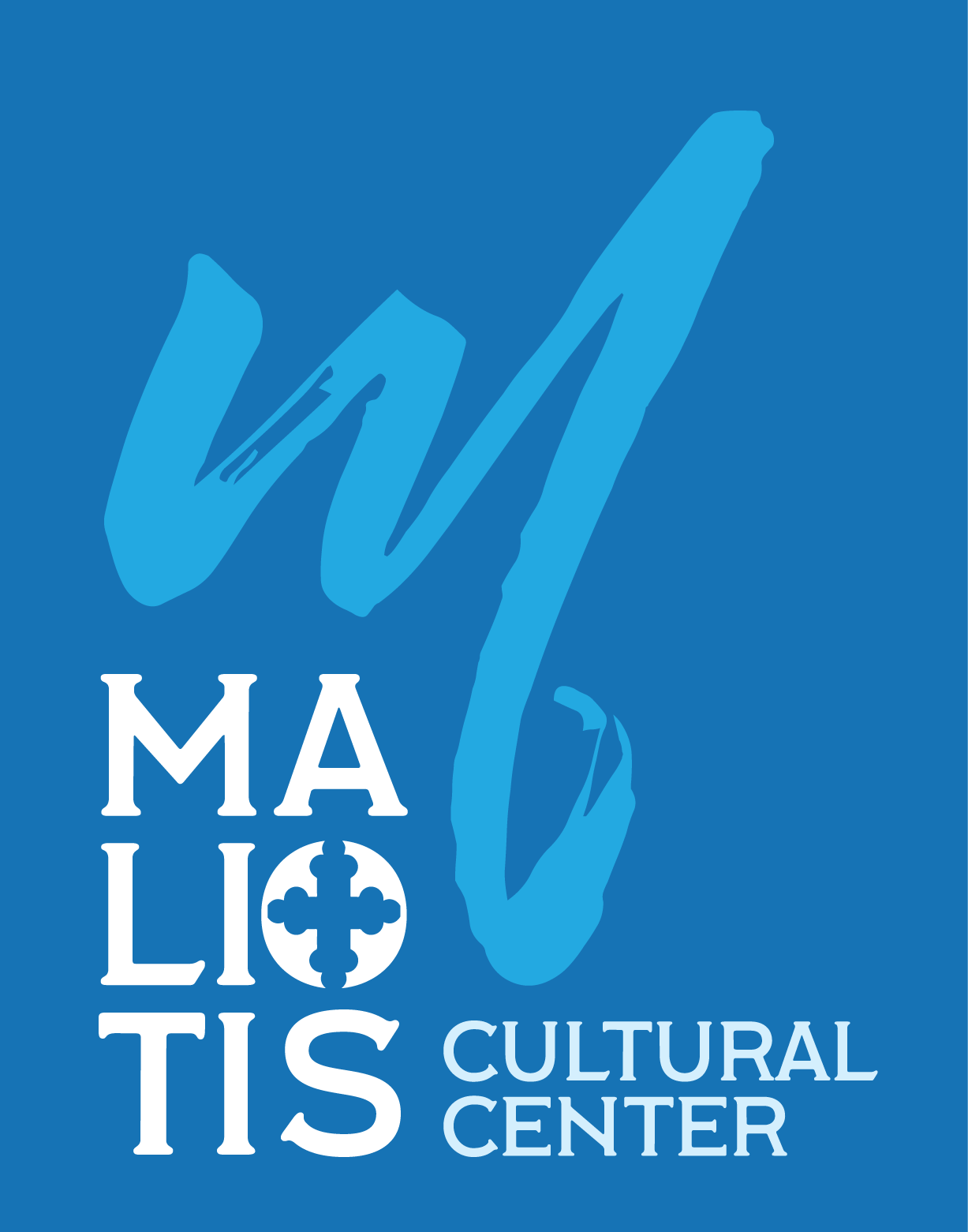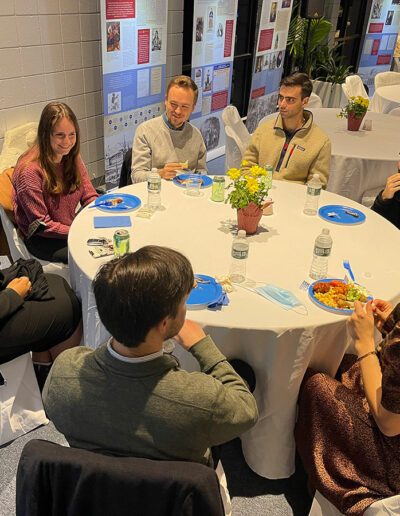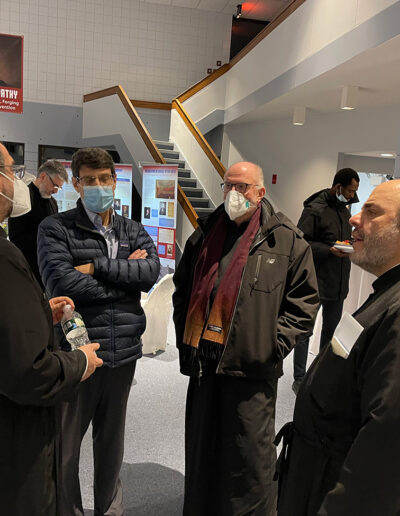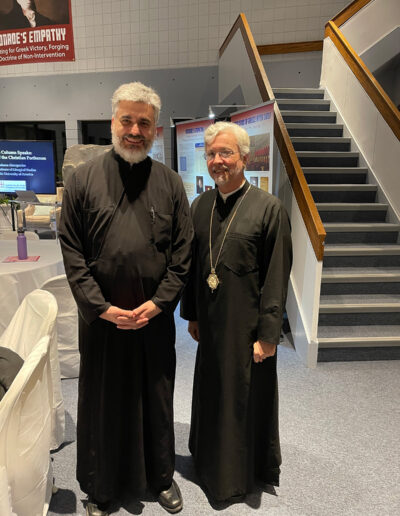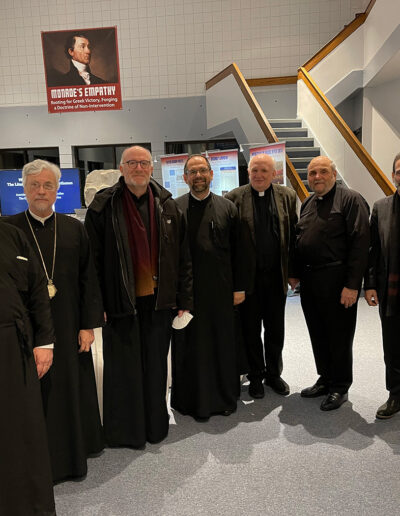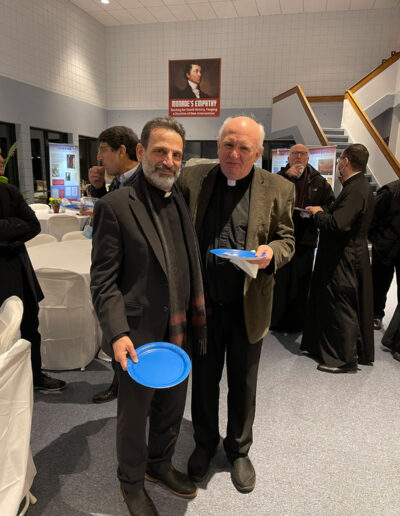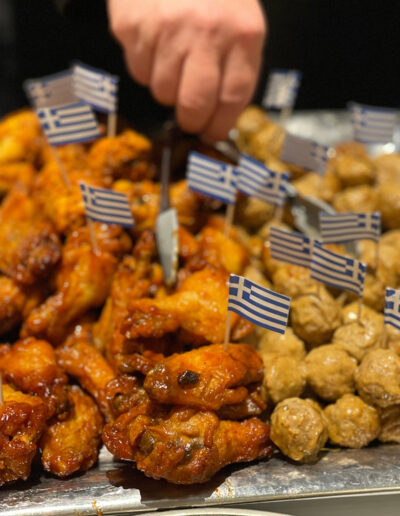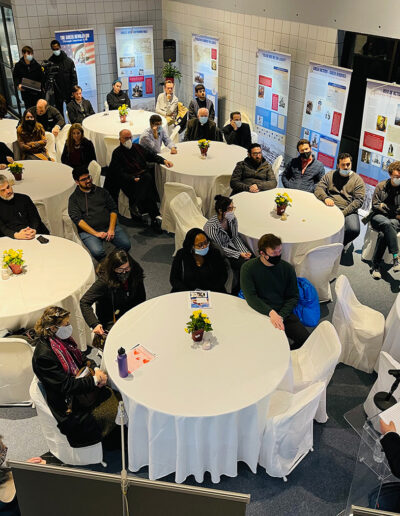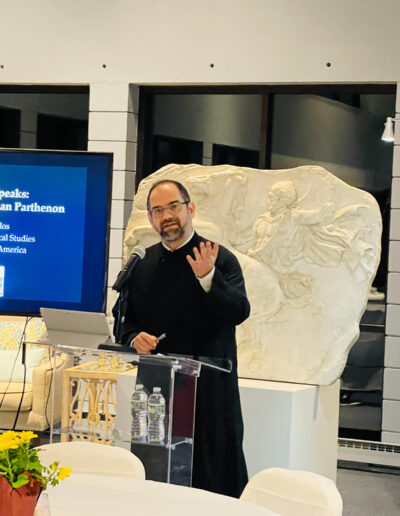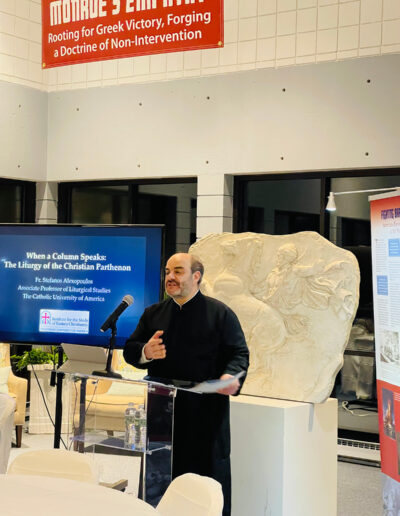About Rev. Dr. Alexopoulos: Fr. Stefanos was born in Zimbabwe, raised in South Africa and Greece, and received his higher education in the United States, earning a B.A. in Religious Studies from Hellenic College, a M.Div. from Holy Cross Greek Orthodox School of Theology, both in Brookline, MA., and a Ph.D. in Liturgical Studies from the University of Notre Dame. While at the University of Notre Dame he taught the course “The Spirituality of the Christian East: Experience, Form, and Expression” for which he received the Outstanding Graduate Student Teacher Kaneb Award for Excellence in Teaching. In 2003 Fr. Stefanos returned to Greece where he served as a parish priest and taught for the College Year in Athens Program, for the Greco-Roman Program of St. John’s University/St. Benedict’s College, Collegeville, MN, and for the Pastoral Institute of the Archdiocese of Athens, Church of Greece. In 2009 he was elected Assistant Professor of Liturgy at the Ecclesiastical Academy of Athens. In the Spring of 2012 he was invited to teach at the Institute of Sacred Music at Yale University as a visiting professor. His work has appeared in English, Greek, German and Russian. He is the author of The Presanctified Liturgy in the Byzantine Rite: A Comparative Analysis of Its Origins, Evolution, and Structural Units in the series Liturgia Condenda 21 (Peeters Publishers, 2009). He is a member of the North American Academy of Liturgy and the Society of Oriental Liturgy, which he served as Secretary between 2006-2012. Since 2009 is actively involved in the new Catalogue of Byzantine Manuscripts project out of the Protestant Theological University (Holland). He is an ordained Greek Orthodox priest, the son and grandson of priests, and since 2010 has been appointed full member of the Special Synodical Committee on Liturgical Renewal of the Holy Synod of the Church of Greece. Fr. Stefanos joined the Faculty of the School of the Theology and Religious Studies at Catholic University of America in the Fall of 2013.
His research focuses on aspects of Byzantine Liturgical History, Eastern Liturgical Traditions and Liturgical Renewal. His current projects include a book-length study on the history of the private “Office of Holy Communion” in the Byzantine rite, a book-length study on the history and theology of the Minor Hours in the Byzantine Rite, and a book-length introduction to Eastern Liturgies.
(Source: Catholic University of America website)
Διάλεξη για τη δεύτερη λειτουργία του Παρθενώνα, ως Χριστιανικής Εκκλησίας, πραγματοποιήθηκε στο Μαλιώτειο Πολιτιστικό Κέντρο την Πέμπτη 10 Φεβρουαρίου στις 7:00 μ.μ. με ομιλητή τον Αιδ. Δρ. Στέφανο Αλεξόπουλο, Αναπληρωτή Καθηγητή Λειτουργικών Σπουδών και Θεολογίας των Ιερών Μυστηρίων στο Catholic University of America. Η σημαντική παρουσίαση του π. Αλεξόπουλου διερεύνησε διάφορες φάσεις της ιστορίας του Παρθενώνα, εμβαθύνοντας στις λειτουργικές τελετές που πραγματοποιήθηκαν στο χώρο, το λατρευτικό του χαρακτήρα και την τέχνη του. Παρουσίασε νέες ανακαλύψεις και θεολογικές συνδέσεις επιγραφών στους κίονες, από το ερευνητικό του έργο, που κέντρισε το ενδιαφέρον φιλολόγων, θεολόγων και ιστορικών. Πολλοί καθηγητές, φοιτητές και μέλη της ευρύτερης ακαδημαϊκής κοινότητας ήταν παρόντες και έκαναν ερωτήσεις στον ομιλητή. Η ενδιαφέρουσα συζήτηση ακολουθήθηκε από μια μικρή δεξίωση στους χώρους του κέντρου..
